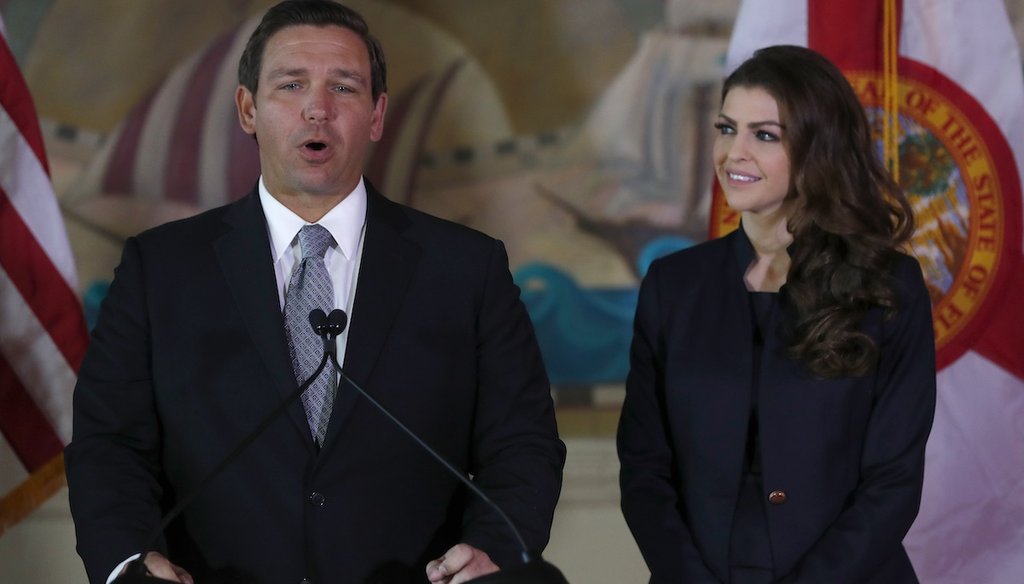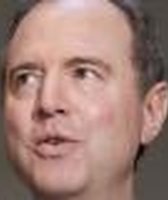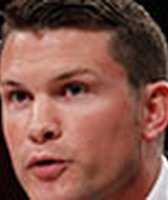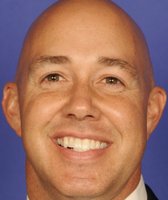Stand up for the facts!
Our only agenda is to publish the truth so you can be an informed participant in democracy.
We need your help.
I would like to contribute

Florida Gov. Ron DeSantis, left, speaks with his wife Casey, at his side Jan. 9, 2019, in Miami. (AP)
If Your Time is short
-
Only Iowa residents who register as Republicans can vote at the Jan. 15, 2024, caucus.
-
Out-of-state residents cannot vote in the caucuses.
-
Out-of-state residents participate in Iowa caucuses by door-knocking, speaking on candidates’ behalves and calling voters.
Casey DeSantis went on Fox News to rally support for her husband, Florida Gov. Ron DeSantis, who is campaigning in Iowa for the Republican presidential nomination. But her comments encouraging out-of-state residents to go to Iowa to "participate" in the caucuses prompted criticism and clarifications.
"We’re asking all of these moms and grandmoms to come from wherever it might be, North Carolina, South Carolina and to descend upon the state of Iowa to be a part of the caucus, because you do not have to be a resident of Iowa to be able to participate in the caucus," Casey DeSantis said Dec. 8, sitting next to her husband. "So, moms and grandmoms are going to be able to come and be a part and let their voice be heard in support of Ron DeSantis."
After that interview, Casey DeSantis said on X, formerly Twitter, that although voting in the Iowa caucus is limited to registered Iowa voters, there was another way for people to participate. "I’m calling on mamas and grandmamas from all over the country to come volunteer in support of Ron DeSantis in the Iowa caucus," she wrote.
The Iowa Republican Party also posted on X: "Remember: you must be a legal resident of Iowa and the precinct you live in and bring photo ID with you to participate in the #iacaucus!"
The same day, Ron DeSantis told reporters that people can go and speak on behalf of candidates, "and they have all these precincts, so you may have people who really can speak strongly about our leadership that are going to come."
Sign up for PolitiFact texts
Donald Trump’s campaign issued a statement Dec. 9 accusing the DeSantises of purposely spreading false information or being uninformed about Iowa’s election process.
"The DeSantises specifically said they were calling on their campaign coalition groups of out-of-state, non-Iowa residents to illegally ‘descend on the caucus’ and try to cast a vote," the Trump campaign statement said.
But Casey did not say "vote," she spoke more broadly about people participating in the caucuses.
To vote Jan. 15 in Iowa, people must be U.S. citizens, Iowa residents and registered Republican voters. People who are 17 years old may register to vote the same day of the caucus if they will be 18 by the November election.
It’s not uncommon for Iowans — including no-party voters or college students — to register to vote at the caucus.
It’s not unusual for out-of-state residents to volunteer in the caucus
Multiple political scientists who have studied the Iowa caucuses, and Will Rogers, a former GOP chair in Polk County, Iowa, said it’s possible for nonresidents to "participate" — but not vote — in the Iowa caucuses.
In Iowa, state parties set caucus rules.
For decades, some presidential campaigns have deployed out-of-state residents to work on the ground in the final days before the caucus by door-knocking and making phone calls on their candidates’ behalves. And some of them on caucus night speak in favor of their candidate.
"They will deploy supporters to precinct locations across the state," said Rogers.
Iowa has about 1,700 precincts, although some caucus in the same buildings (including schools, churches and community centers). That means campaigns have to find a lot of people to have someone at each precinct.
In 2000, George W. Bush’s campaign deployed busloads of Texans at precincts across the state. They wore Bush stickers, buttons and hats and tried to persuade people to vote for Bush, Rogers said.
"Back in 2020, President Trump brought in a commercial jetliner full of people to speak as surrogates at precincts all over the state of Iowa," Rogers said.
Rogers predicts that in January multiple campaigns will send people to precincts to speak on behalf of their candidate. Not all may be from Iowa.
Precincts are typically small enough that Iowans know if someone is from their neighborhood or state, or out of town, said Tim Hagle, associate professor of political science at the University of Iowa. It could be a selling point if a person from out-of-state appears at an Iowa caucus to explain why DeSantis has been a good governor, he said.
However, out-of-state residents advocating for a candidate at the caucus is not something candidates would want on a wide basis, said Bob Beatty, a professor at Washburn University in Kansas who has studied the caucuses for decades. For example, an Iowan may be more convincing to an Iowan than a Floridian, he said.
RELATED: Fact-checking 2024 presidential candidates, who’s running
Our Sources
Fox, The DeSantises speak out from the Iowa campaign trail, Dec. 8, 2023
Casey DeSantis, X, Dec. 8, 2023
Iowa GOP, X, Dec. 8, 2023
Iowa Secretary of State, Election day registration, accessed Dec. 11, 2023
CNN, Casey and Ron DeSantis play cleanup over Iowa caucus remarks, Dec. 9, 2023
CNN, Casey DeSantis calls on out-of-state voters to participate in Iowa caucuses, Dec. 9, 2023
Des Moines Register, Casey DeSantis asked everyone to 'participate' in the caucus. Do you have to be an Iowan? Dec. 9, 2023
Des Moines Register, Everything you need to know about the Iowa caucuses ahead of the 2024 presidential race, updated Dec. 11, 2023
The New York Times, Casey DeSantis Invited Outsiders to Caucus in Iowa. The State Party Said No. Dec. 9, 2023
Trump campaign, After the DeSantises Purposefully Spread False Election News to Commit Organized Voter Fraud in the Iowa Caucus, Voters Demand Kim Reynolds Must Declare a Free and Fair Election, Dec. 9, 2023
NBC, Yang turns to large number of out-of-state supporters in Iowa bid, Feb. 1, 2020
Telephone interview, Will Rogers, former Polk County GOP Chair, Dec. 11, 2023
Telephone interview, Tim Hagle, a University of Iowa political science professor, Dec. 11, 2023
Email interview, Christopher W. Larimer, professor of political science, University of Northern Iowa, Dec. 11, 2023
Email interview, Bob Beatty, Washburn University political science professor, Dec. 11, 2023
Email interview, David Redlawsk, political science professor at the University of Delaware, Dec. 11, 2023






































